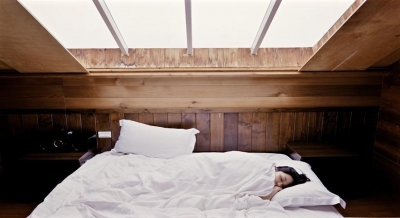Sleep disorders related to life in lockdown
By IANS | Published: October 26, 2020 02:54 PM2020-10-26T14:54:06+5:302020-10-26T15:10:24+5:30
New Delhi, Oct 26 life) 2020, unfortunately, has been a year that has not brought us much happiness, and ...

Sleep disorders related to life in lockdown
New Delhi, Oct 26 life) 2020, unfortunately, has been a year that has not brought us much happiness, and for a significant proportion of individuals, sleep disturbances have added to their woes. The lockdowns imposed to prevent the spread of the novel coronavirus, SARS-CoV-2, have led to significant behavioral changes and adaptations to help individuals optimise their productivity, which in turn, have affected normal physiological processes related to health.
Circadian rhythm disturbances:
Most mammals have a circadian body-clock which rhythmically has sleep and wake cycles. In humans, eight hours of sleep is considered the average requirement for most individuals, and the presence of cues such as external light and temperature influence such cycles. In the pre-COVID era, the timing, duration and regularity of sleep in most individuals was determined by rigid schedules related to work or study. Post the lockdown, this has now been left to the vagaries of the demands of the new normal, and this has caused circadian disturbances. Work/study from home is relatively unstructured, and the increased digital media/backlit device exposure leads to the biological clock getting mixed signals about day-night transition, often leading to delays in sleep onset. A survey conducted among 1511 participants in India revealed that younger individuals and women were more susceptible to these changes, causing a state of 'social jetlag'. When conventional gender roles are in play, working women now have to multitask between household and work responsibilities, in addition to assisting younger kids with online school, and this possibly explains why their sleep schedules have been most disrupted. What has also been reported in studies is that despite sleeping for longer hours, individuals often report a poorer quality of sleep, resulting in feeling less rested.
Insomnia:
Social isolation, financial/job insecurity, stigmatization of individuals with COVID-19, the constant media exposure to reports of rising infections and deaths, and stories of near and dear ones succumbing to the disease all lead to a sense of helplessness, anxiety and depression. Insomnia is a common manifestation of depression, and as treating physic, we have experienced a significant proportion of individuals report the symptom during the lockdown. In addition, post-traumatic stress disorder
( With inputs from IANS )
Disclaimer: This post has been auto-published from an agency feed without any modifications to the text and has not been reviewed by an editor
Open in app